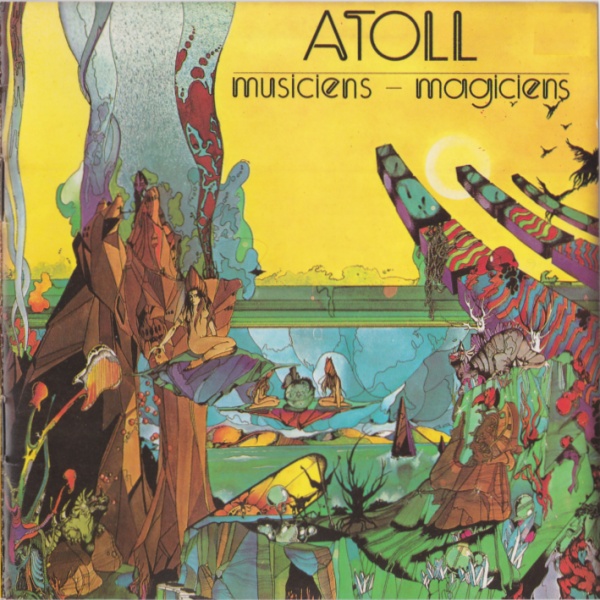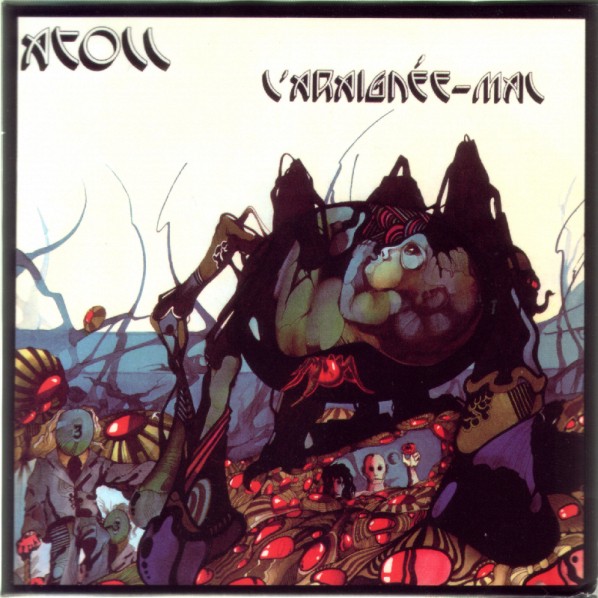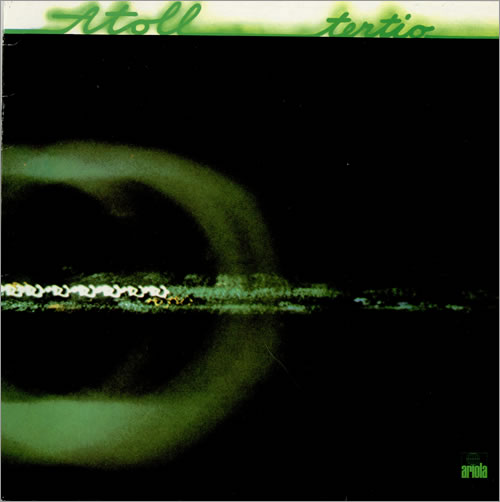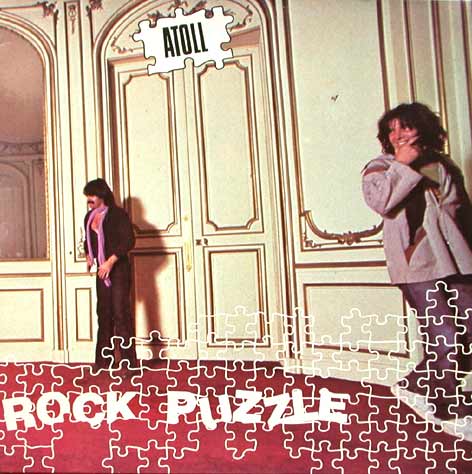
Exposé Online
What's old
Exposé print issues (1993-2011)
- 1 (October 1993)
- 2 (February 1994)
- 3 (May 1994)
- 4 (August 1994)
- 5 (October 1994)
- 6 (March 1995)
- 7 (July 1995)
- 8 (November 1995)
- 9 (March 1996)
- 10 (August 1996)
- 11 (February 1997)
- 12 (May 1997)
- 13 (October 1997)
- 14 (February 1998)
- 15 (July 1998)
- 16 (January 1999)
- 17 (April 1999)
- 18 (November 1999)
- 19 (May 2000)
- 20 (October 2000)
- 21 (March 2001)
- 22 (July 2001)
- 23 (December 2001)
- 24 (April 2002)
- 25 (September 2002)
- 26 (February 2003)
- 27 (August 2003)
- 28 (December 2003)
- 29 (April 2004)
- 30 (September 2004)
- 31 (March 2005)
- 32 (September 2005)
- 33 (May 2006)
- 34 (March 2007)
- 35 (January 2008)
- 36 (October 2008)
- 37 (July 2009)
- 38 (July 2010)
- 39 (Summer 2011)
Reviews
Atoll — Musiciens - Magiciens
(Musea FGBG 2100.AR, 1974/2004, CD)
Atoll — L'Araignée-Mal
(Musea FGBG 2101.AR, 1975/2004, CD)
Atoll — Tertio
(Musea FGBG 2102.AR, 1977/2004, CD)
Atoll — Rock Puzzle
(Musea FGBG 4024.AR, 1979/1993, CD)




I always thought of Atoll as being the number two French symphonic rock band in the 70s, after Ange. Like Ange, they applied the ideals and techniques of progressive rock to French culture and came up with something unique. Also like Ange, they tend to be very dramatic, especially in the vocals, which are sometimes spoken or whispered. But Atoll are probably more accessible to the non-French listener, with a sound that is a little less divergent from the British pioneers like Yes. They released three classic progressive albums and, struggling to find their way in the musical landscape after the advent of punk rock, one forgettable attempt at more commercial fare. After a truly solid debut as a five-piece in 1974, personnel changes resulted in a six-man group that recorded what is generally regarded as their masterpiece, L’Araignée-Mal, a stunning work full of great compositions, interesting sounds, and varied moods. The addition of violin acts as a wonderful counterbalance to new guitarist Christian Béya, whose technical prowess often propels the band in the direction of jazz fusion.
Turmoil following the second album led to the loss of the violin, and as a streamlined five-piece, the band made a conscious decision to move away from the fusion elements toward a more symphonic sound on their third album. Tertio was the first Atoll I heard, and remains a special favorite, though I give L’Araignée-Mal a slight edge in quality. By this point, the band is quite accomplished at their unique version of the genre, with an energetic rhythm section, lots of Mellotron backing, and great guitar work, both on chording and solos.
When it came time to record their fourth album, the band found themselves in a climate no longer friendly to complex symphonic music, and like many other progressive bands, sought to maintain relevance by simplifying their music. The result, Rock Puzzle, still has some progressive elements either woven into the songs or as uneasy interjections within them. The arrangements often feature a horn section in awkward counterpoint to the guitar and keyboards. It doesn’t always work, but it’s no more embarrassing than the efforts of other prog bands of the time. As a curiosity, this CD includes three tracks the band recorded in 1981 with John Wetton for a project that never got off the ground just before he joined Asia.
These reissues provide a welcome spotlight for one of the great bands of the 70s. For those who already own any of these on CD, the sound is greatly improved, with the previous Musea discs sounding muffled by comparison – Tertio is especially improved. The bonus tracks (particularly on the first album) are the exception: the live recordings still sound tinny and distorted, but they are easily enough ignored.
by Jon Davis, Published 2005-09-01
[Regarding Musiciens - Magiciens]
When I think back to when I started to get into European progressive music, it was not just the music that caught my ear, but a lot of the artwork, and I've always really liked Musiciens - Magiciens and I dare say it probably had some level of influence on my own art. This title, like the Asia Minors, was reissued pretty early by Musea back when I was young, poor, and with a smaller collection where I ended up playing things a lot more often, and this was one I played to death in the 90s. Like most people, when the sonics get muddy I'm usually out, but I actually fell pretty hard for the four bonus tracks that were added to the reissue. There was something about this first lineup of Atoll that really added a kind of cosmic and mystical level to what was obviously a highly Yes, Genesis, and Ange-inspired debut, and I'd take it a little farther and say these guys were probably also listening to the Grateful Dead and others of that ilk, especially based on the live feel of the bonus material. The music was generally based on a lot of big keyboard chords and there's a huge atmosphere to the music as well as a solid sense of naivete in the musicianship that would be gone by their next, more fusion-based release. Over half the songs on here I almost know by heart, especially the solid stuff on side 1 and the early parts of side 2, and I do wish they'd done studio versions of the live track or two towards the end. This album is almost part of my personal, musical DNA and if it could easily be argued that their second and third releases were more mature and studied, this one will always be my sentimental favorite.
by Mike McLatchey, Published 2017-03-09
[Regarding Rock Puzzle]
Rock Puzzle is the long awaited CD reissue of Atoll’s fourth album recorded in 1979. True to their practice of releasing high quality CDs, Musea included an extra 33 minutes of six unreleased tracks! Three of which were songs composed by John Wetton (ex-bass and vocalist for Family, King Crimson, and Asia) and performed under Atoll’s name prior to Wetton’s Asia recording sessions. One of these songs is the original version Asia’s big hit "Here Comes the Feeling." Besides the Wetton songs, the three other previously unreleased tracks are remixes of "L’Ultime rock," "Puzzle," and the only Atoll song ever performed in English, "Atari, that’s a game! (Smarto Kitschy-American mix)." Atoll was France’s premiere progressive band. Over the course of their four albums Atoll continued to explore and experiment in the sophisticated rock music of the seventies, a progressive band in the truest sense of the word. Rock Puzzle is a rockier album than their previous outings with "Smarto Kitschy" being an attempt at reaching a mainstream audience. Besides this throw away song, the remainder of the album teems with elaborate keyboard and guitar work bearing the Atoll trademark. Musea again reissues a much sought after recording from the annals of French progressive rock with a beautiful color picture CD, original cover art, and a 16-page booklet of lyrics, history, and a perspective by John Wetton. Rock Puzzle is an essential CD for the French rock collector.
by Henry Schneider, Published 1999-12-31
Filed under: Reissues, Issue 32, 2004 releases, 1974 recordings, 1975 recordings, 1977 recordings, 1993 releases, 1979 recordings
Related artist(s): John Wetton, Atoll, Christian Béya
What's new
These are the most recent changes made to artists, releases, and articles.
- Review: Sterbus - Black and Gold
Published 2026-03-03 - Release: Janel Leppin's Ensemble Volcanic Ash - Pluto in Aquarius
Updated 2026-03-02 15:06:51 - Release: Janel Leppin - Slowly Melting
Updated 2026-03-02 15:05:27 - Release: Alister Spence - Always Ever
Updated 2026-03-02 15:04:11 - Release: Let Spin - I Am Alien
Updated 2026-03-02 15:02:41 - Review: Falter Bramnk - Vinyland Odyssee
Published 2026-03-02 - Review: Exit - Dove Va la Tua Strada?
Published 2026-03-01 - Review: Steve Tibbetts - Close
Published 2026-02-28 - Release: We Stood Like Kings - Pinocchio
Updated 2026-02-27 19:24:02 - Release: Stephen Grew - Pianoply
Updated 2026-02-27 19:20:11 - Release: Thierry Zaboitzeff - Artefacts
Updated 2026-02-27 00:16:46 - Review: Kevin Kastning - Codex I & Codex II
Published 2026-02-27 - Release: Zan Zone - The Rock Is Still Rollin'
Updated 2026-02-26 23:26:09 - Release: The Leemoo Gang - A Family Business
Updated 2026-02-26 23:07:29 - Release: Ciolkowska - Bomba Nastoyashchego
Updated 2026-02-26 13:08:55 - Review: Immensity Crumb - Chamber Music for Sleeping Giants
Published 2026-02-26 - Release: The Gatekeepers - Diary of a Teenage Prophet
Updated 2026-02-25 15:55:58 - Listen and discover: Mordecai Smyth will not break your back
Published 2026-02-25 - Review: Mars Lasar - Grand Canyon
Published 2026-02-25
